Former Sims lead says men would lie about how they played during focus groups: 'Actually, what you did is you redecorated that bathroom'
Rod Humble's new life sim takes careful account of the observation that people don't always want others knowing what they do in life sims.

One reason people play life sims, says former Sims studio head Rod Humble, is that they offer a noncommittal way to explore self-identity. Players can try on lifestyles and experiences they're curious about, but if they feel uncomfortable, they can always hit the eject button by deciding that they're playing a game about their sims rather than as them. That tendency to experiment and then retreat was completely apparent during focus groups, according to Humble, because players would deny doing things he watched them do.
"Remember, we've just watched these people play the game," Humble told me, "and I had people come out and lie to us, to the whole group, about what they just did."
Humble hasn't worked on The Sims for a while now—he's currently making a new life sim called Life By You—and he mostly avoided direct references to the EA series when I spoke to him at GDC last week, but it's obvious that he was referring to The Sims when describing these focus group fabrications.
"I remember a bunch of young guys," said Humble, "and they get into the room, it's a mixed room, and we're like, 'Hey, what did you do?' and they're like, 'Murdered people. Went in and starved people, had sex with everybody in the town.' But actually, what you did is you redecorated that bathroom, right? Like, that's actually what you did. There's this idea that there are some things you should say you're doing, but actually, no, you're cooking, you're making house."
This wasn't just an idle observation about out-of-date Sims 3 market research, but a major focus of our talk: Humble's new game, Life By You, is built on the understanding that people may not always want to acknowledge what they do in life sims, even to themselves, or may at least want the option to feel that it's their sim people, not them, making decisions. Humble refers to this as an inherent and desirable "tension" in the genre.
"If you hear us talk about playing a life sim, we'll often alternate between first- and third-person," said Humble. "So we'll say, 'I asked Jeffery on a date, we went on our date, and my person messed it up.' And so they'll change from 'me as the player' versus 'my agent did something.' And that tension is where there's a lot of magic in life simulation. You're going back and forth between, 'Am I playing that person, or is that a little creature that I've got a distance on?'"
In Life By You, it's possible to literally switch to a first-person perspective to directly control any character at street level, exploring the open world and making decisions as them, or on their behalf, depending on the metaphorical point-of-view you adopt. But you can always escape to the third-person overhead view, where the town's customizable residents don't break the fourth wall by acknowledging you or your giant god hand, except in that you can use it to pick them up and move them around.
Keep up to date with the most important stories and the best deals, as picked by the PC Gamer team.

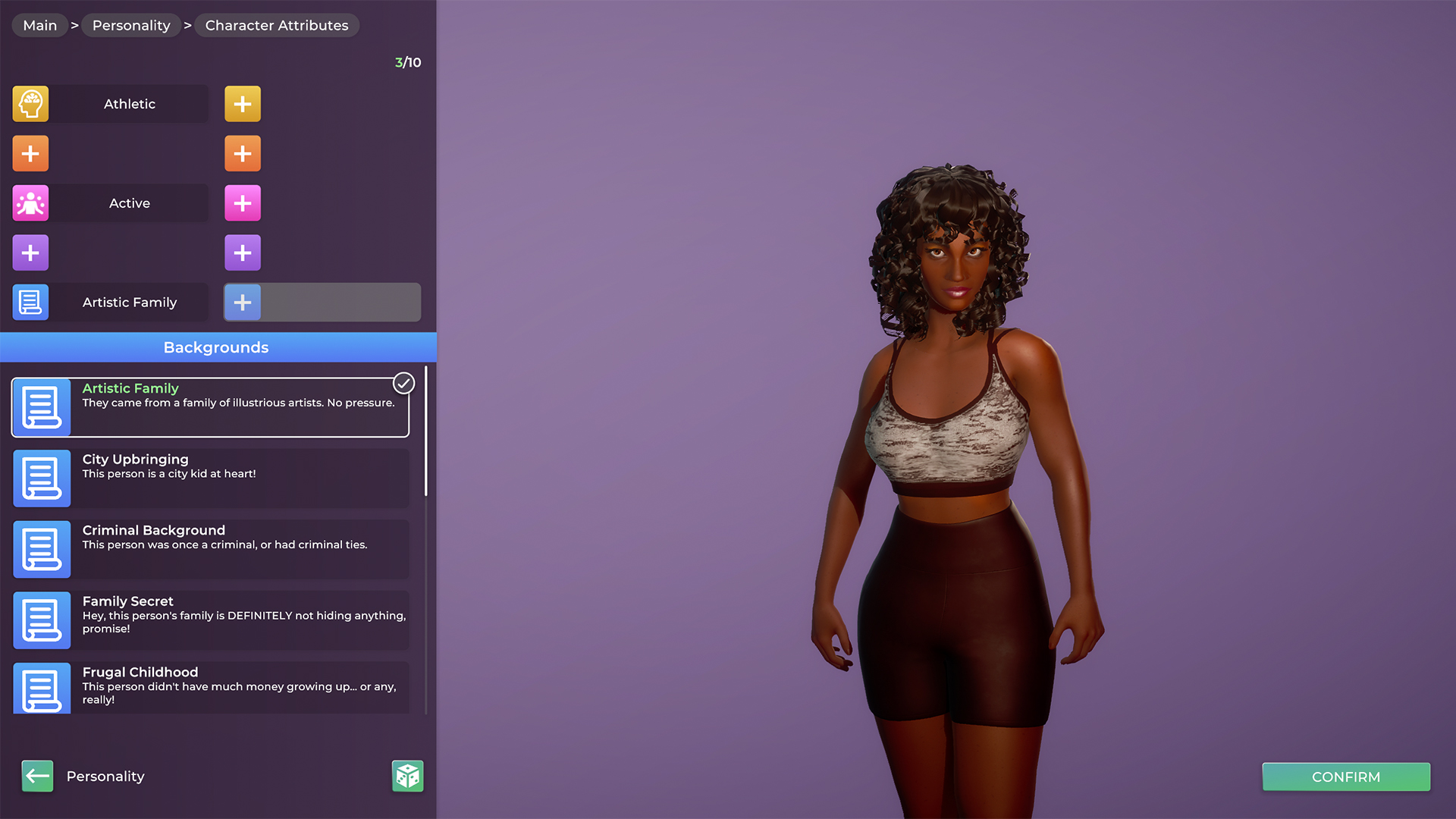
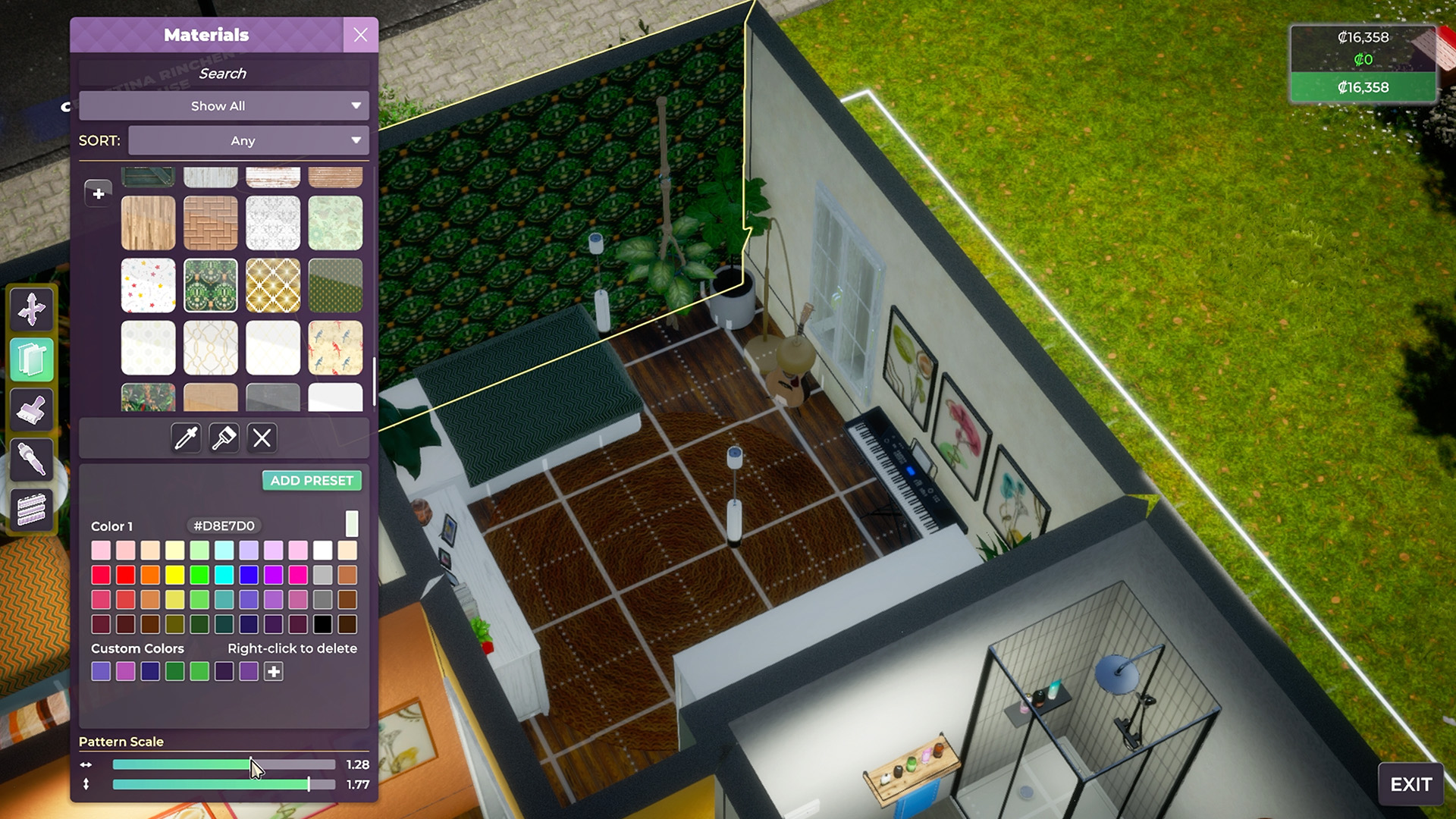
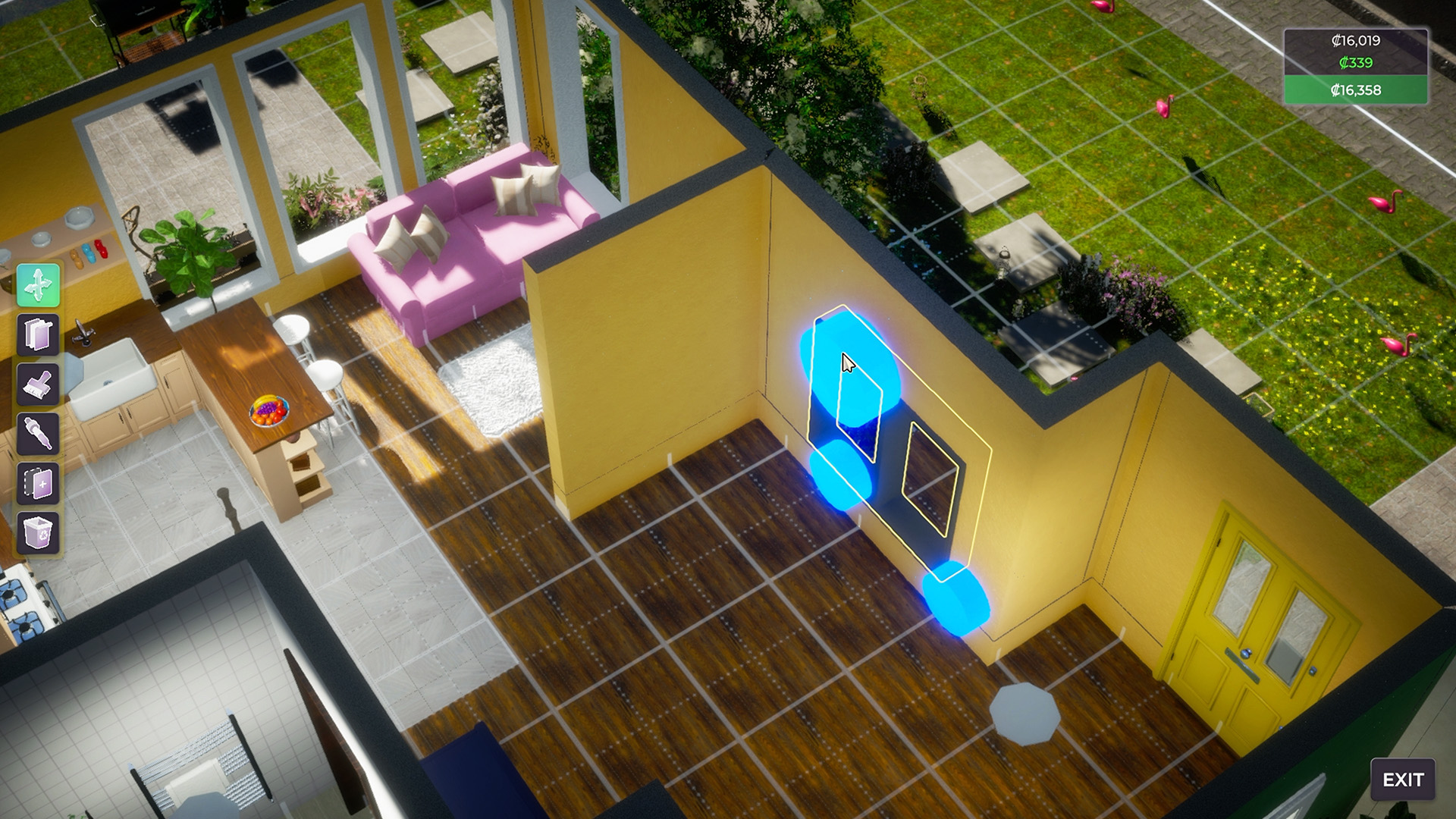
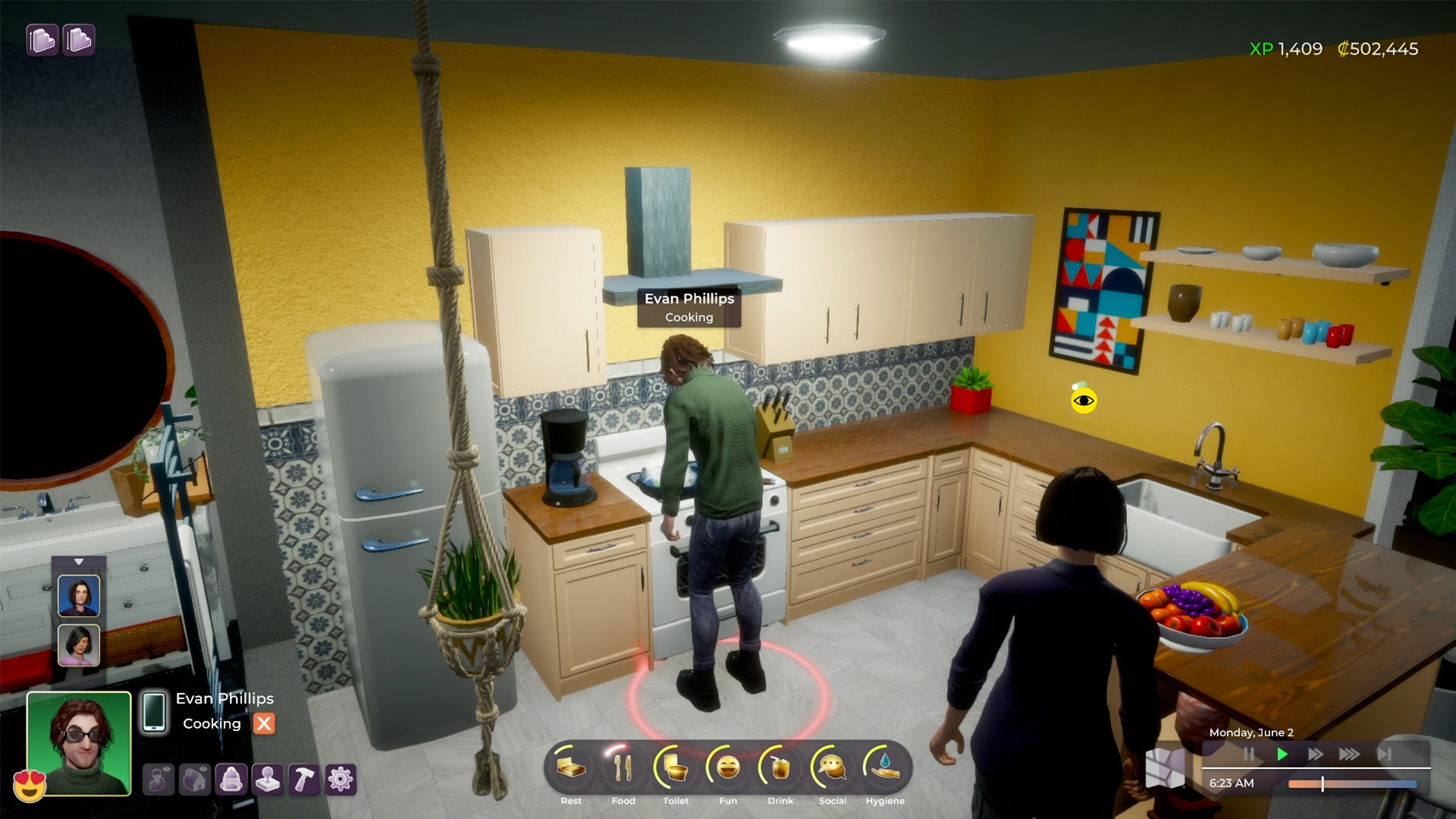
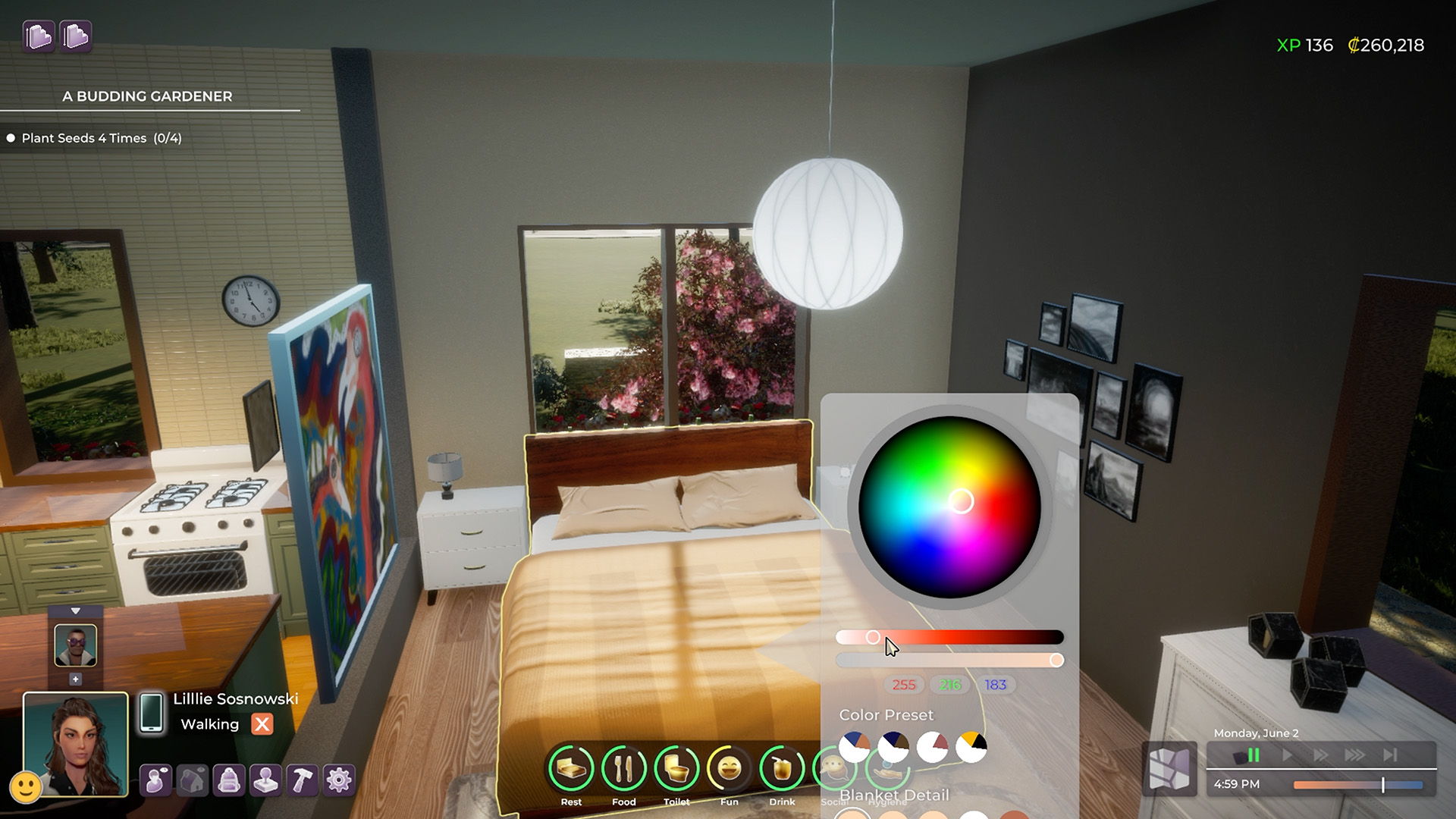
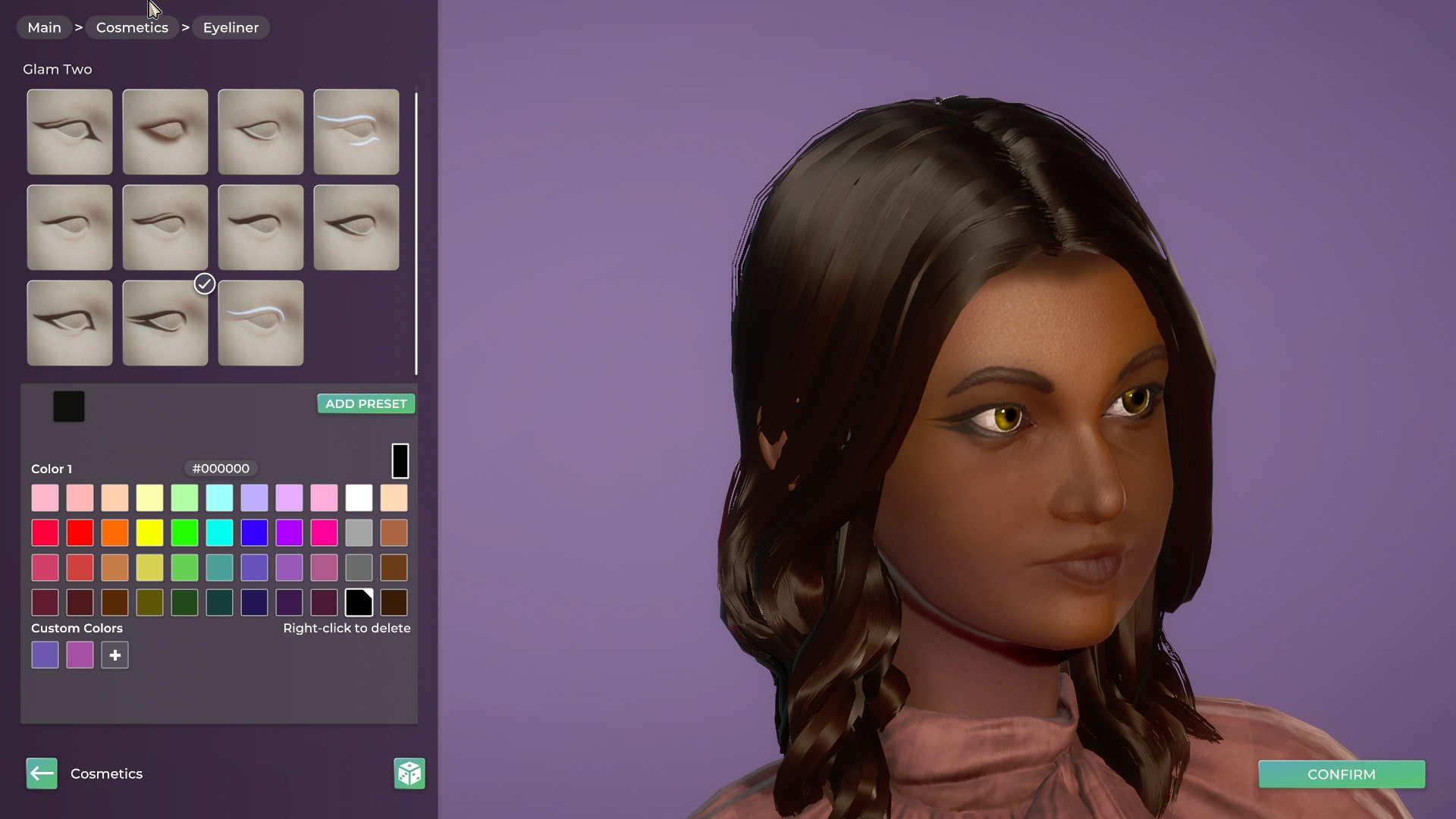
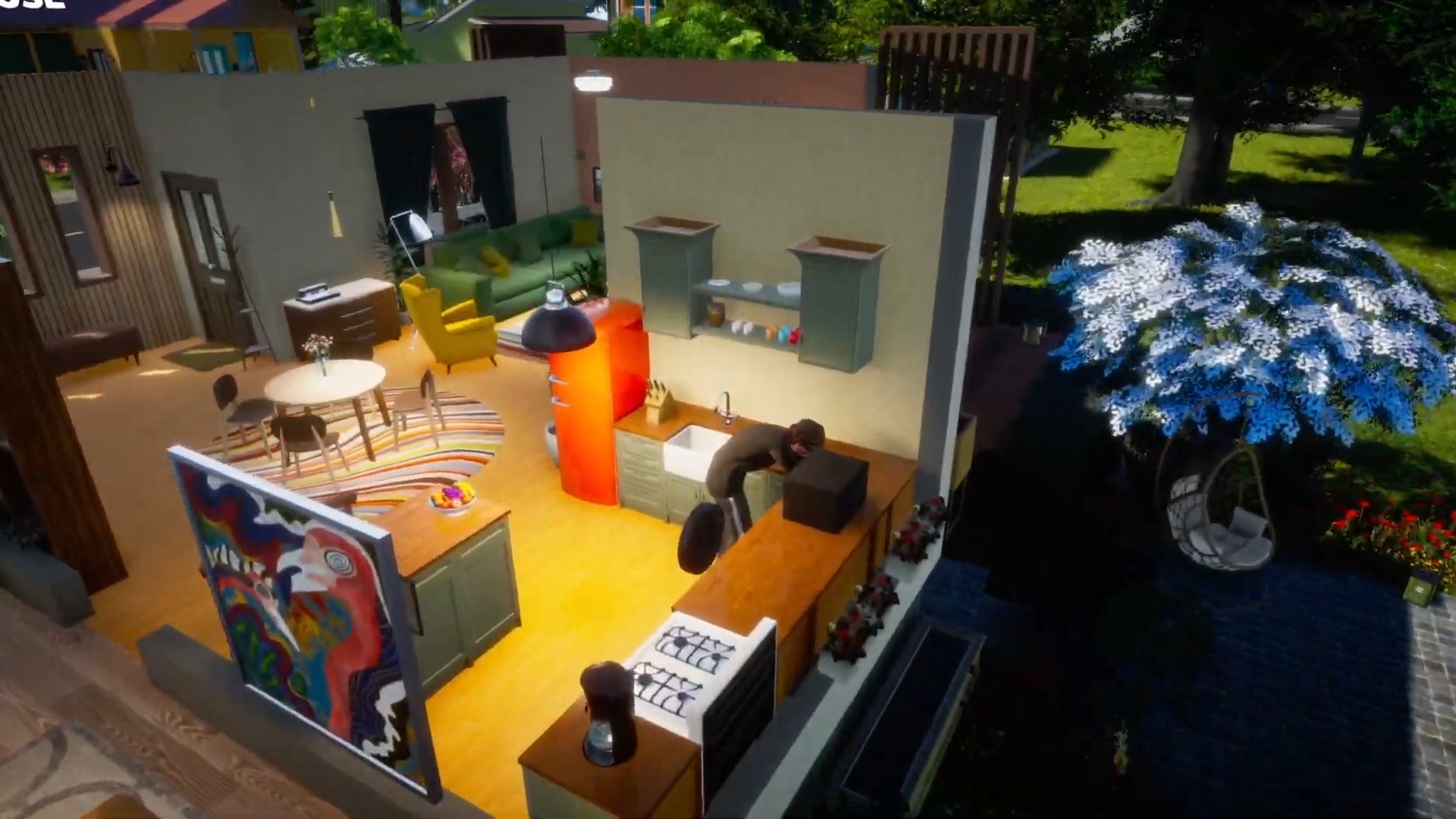
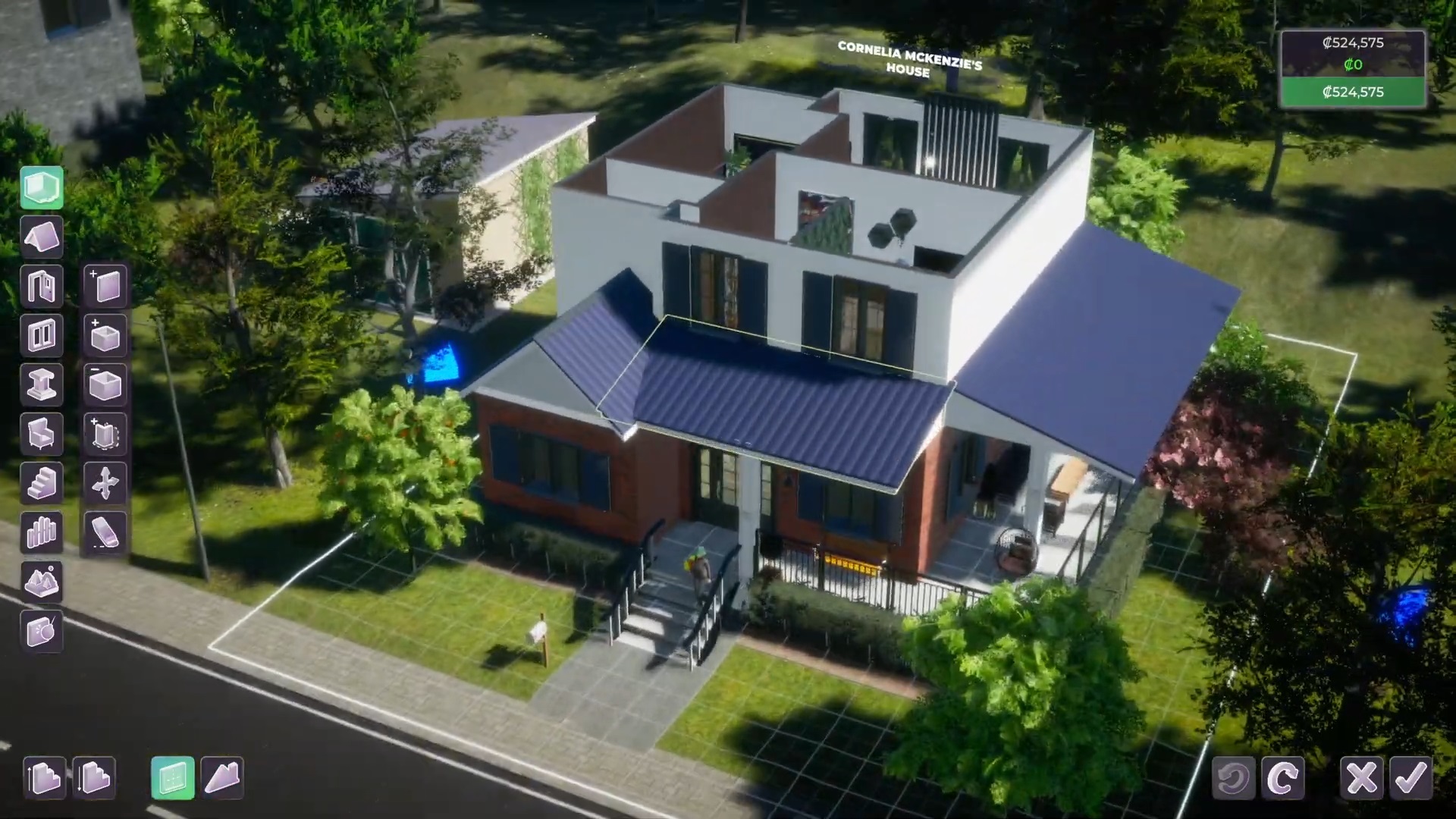
It's very important for this community, in this day and age, to know that this is a private experience.
Rod Humble
Along with the customization of individual characters, Humble told me that players can override the default gender, sexual orientation, age, and skin color distributions in their towns, adjusting pie charts to create custom demographics—another angle on explorations of identity. Players can make something representative of the place they live, for example, or a town in which everyone is in love with one specific person, or a town in which everyone is gay. Non-binary and trans identities are represented, Humble confirmed to me.
The idea that players may want plausible deniability about what they do in life sims also led Humble to leave something out of Life By You: telemetry, or the collecting of anonymized gameplay data for statistical purposes. It's how EA knows there were 289 million "WooHoos" across Sims 4 games last year, for example. A lot of games do it, and the responsible ones ask you before transmitting anything, but Humble decided it was better to leave it out entirely.
"It's very important for this community, in this day and age, to know that this is a private experience," Humble told me. "There's no in-game telemetry gathering data that could, for example, go to a hostile government."
There's no particular reason to believe that identifiable Sims 4 telemetry data is likely to leak, and Humble himself didn't directly mention the series in this context, but the knowledge that he considered the issue from a player's perspective and chose the most privacy possible—no telemetry at all—should put some minds at ease. There's no perfect data security.
At GDC last week, I also spoke to Humble about sex mods (he's for them) as well as the many less salacious but perhaps no less engrossing activities that Life By You players can get up to when it releases in early access this September—designing functioning restaurants, down to their menus, for instance. It sounds cool, as well as dangerously ambitious, and you can read more about it here.

Tyler grew up in Silicon Valley during the '80s and '90s, playing games like Zork and Arkanoid on early PCs. He was later captivated by Myst, SimCity, Civilization, Command & Conquer, all the shooters they call "boomer shooters" now, and PS1 classic Bushido Blade (that's right: he had Bleem!). Tyler joined PC Gamer in 2011, and today he's focused on the site's news coverage. His hobbies include amateur boxing and adding to his 1,200-plus hours in Rocket League.

